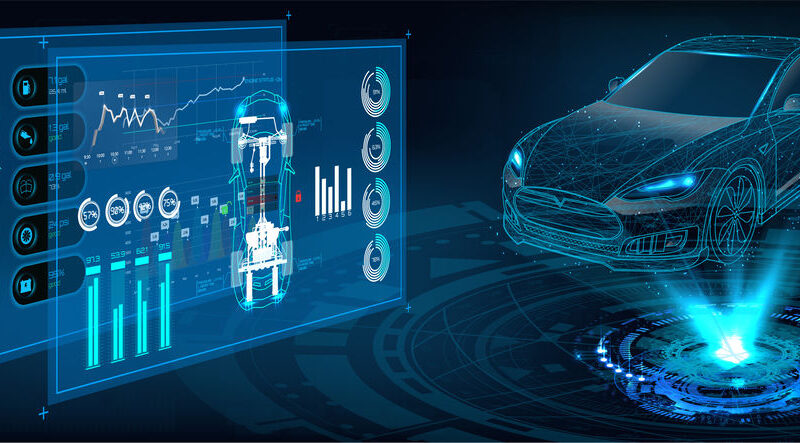Operating systems – how car makers are discovering the passion for software
It seems every machine that was once mechanical in nature and required the most complex hardware has now become more technology savvy. The paradigm has shifted towards software and all talk about hardware has slowly departed into the background. Take a look at telephones, washing machines, televisions, and even the automotive industry all of them have revolutionized. The automotive industry, in particular, was once purely dependent on hardware engineering and things like who has the best engine, the softest suspension, or the best handling held a lot of value. While these things are still supremely important the focus has meanwhile heavily shifted towards technology.
Nowadays, you will hear people talking about AI, self-driving cars, immersive infotainment screens, and accurate navigation among other things. All of this technological revolution has started a whirlpool that is sucking in the entire industry and forcing it to adopt the new norm. Arguably, the company that forced the industry to take that road was Tesla.
Tesla’s Innovation
There have been several automotive companies who have tried their hand at software-based technology but none have succeeded as much as Tesla. Traditional OEMs focus more on the engineering aspect of the car leaving the electronic or software perspective to third-party companies like Bosch or Siemens. These OEMs have come very far in terms of technology and yes vehicles have become less mechanical and more dependent on electronics but in the absence of a single operating system, it is hard to go far.
Tesla has beaten the tradition by becoming the only automaker to offer a single operating system that controls the functionality of the entire car. Tesla’s computer manages the battery, the infotainment features, and the safety features in the car. If they have a new feature on offer, an over-the-air software update delivers it to your car without you knowing. In other words, their approach to cars is similar to what we see in mobile phones and tablets. The presence of one operating system makes things uncomplicated and even opens up many avenues to discover.
Tesla has certainly set the pace for the entire automotive industry in this regard but are traditional OEMs going to follow the trend?
The Move to a New Era
Many vehicle manufacturers are slowly but gradually catching up on the trend. And as the world is moving towards EVs this change has become necessary. A computing system is the heart of an electric vehicle and having a single integrated system helps vehicle manufacturers to compete with the likes of Tesla.
Daimler-NVIDIA Partnership
Daimler has partnered up with NVIDIA to come on par with a company like Tesla who has an advantage over other OEMs having roots in the silicon valley – the Olympus of the tech world. The two companies plan to work together to produce a computing system and an AI computing infrastructure to make upcoming Mercedes vehicles more tech-savvy and on par with the vehicle standards of the future world. The first glimpse of this technology will be available by 2024 and will also feature automated driving capabilities for Mercedes consumers. Mercedes vehicles are all about luxury and performance so it would be nice to see a well-integrated system working to facilitate the consumer experience.
BMW Moving Forward
The German auto giant BMW for example has already joined the race with Remote Software Upgrades. This system allows BMW users to receive over the air updates and improve some drivability and safety features. The facility is available in the most recent BMW vehicles as of now but the functionality that can by influenced by updates will gradually further grow in the coming years. This is revolutionary considering vehicle manufacturers rarely provide any extra features or software improvements after you purchase their vehicle.
Unsurprisingly, BMW does not plan to stop at Remote Software Upgrades but intends to dive deeper into the software development world. The German automotive giant has partnered up e.g. with Tactile Mobility, an Israeli based startup, in that regard to help them in their pursuit of adopting a singular operating system. Tactile Mobility as well as other emerging tech companies across the globe will support BMW with the necessary technology to take their cars to the next level with AI capabilities improving road safety and vehicle drivability.
VW head-to-head with Tesla
Volkswagen is one of the largest auto manufacturers in the world, and they have taken on the challenge posed by Tesla. VW is just in progress of combining most of their car software activities in a separate software development company called the Car Software Organization that will allow VW to integrate EVs in their lineup quicker as well as improve the functionality of existing motor vehicles. The software company will work on improving the current infotainment experience of the vehicles under the VW AG umbrella while also introducing autonomous driving functionality in the future. The subsidiary will keep mobility and connectivity at the helm of their plan. The plan is to beat Tesla in terms of software and production capabilities, and with the number of finances, VW has this does not seem like a far-fetched aim.
Toyota’s in-house Development
Naturally, Toyota, also one of the major auto manufacturers in the world, has started its in-house software development. The company had plans to bring a unified Toyota OS back in 2007 but the rise in competition with companies like Tesla and VW multiplying their efforts, the process has sped up in Toyota.
The Japanese auto giant has launched a new software company that will oversee the development of an AI framework. Woven Planet Holdings will look over two smaller entities that will be building a unified system for all Toyota vehicles. Toyota plans to bring this software side on par with its hardware excellence. Given the history of the company, you can rest assured Toyota vehicles will see a change very soon.
Other OEMs dealing with Google and the giants
Not many manufacturers have the finances to meet demand and compete with the likes of VW, Mercedes, or Tesla. Those who are unfortunate in this regard, fortunately, have a way to move forward, and the big tech giants are there to help. First of all: Google.
Google does that through its OS called Android Automotive. The company has built such a platform that combines the infotainment system into one unit and controls it just like your phone or tablet. You can make calls using your voice, adjust navigation, view the options in the car, and control them among other things. Android Automotive is an android-based operating system that supports apps built for Android Automotive and Android Auto. Google has taken up the challenge and it hopes to step up in its game and help car manufacturers with traditional operating systems to offer more to their consumers. These auto manufacturers will be able to proffer multiple features through the OS like drive-way payments while sitting in the car, receive updates, and lots more in the future just through Google’s Android Automotive.
Google is not the only company to jump into the car software bandwagon. More players from the silicon-valley are interested in giving their piece. We mentioned NVIDIA’s partnership with Daimler but that is only the tip of the iceberg. Amazon is working on the Alexa Auto Software Development Kit and will introduce the OS in partnership with General Motors. Apple is also reportedly working on an OS. But instead of partnering with an automotive company Apple aims to launch its EV by 2021. Maybe. The discussions around an Apple car are now ongoing for years, but that’s another story.
What Works the best?
There are three ways vehicle manufacturers can welcome the shift from “electronics” as a huge set of different control units bought from suppliers with packaged hard- and software towards a single operating system: They can do it like Daimler and build a partnership with a well-reputed tech company like NVIDIA. They can employ their own software company like Volkswagen and Toyota, or they can let third-party tech companies like Google take the reins. The path a company chooses to take depends on their budget and willingness to transform.
But which path is the best and gets the best results? Well, that is all relative. When it comes to car manufacturers, most of them like to play it safe and follow rather than lead. An example is Polestar who recently adopted the Android Automotive in the Polestar 2 EV. But then again, a company like Polestar does not have the resources to hire someone like NVIDIA or start a software company from scratch like VW. Using a third-party OS might bring rewards in the beginning, but there’s a possible risk since a manufacturer might get stuck with them not being able to switch to another provider with ease.
Hiring a tech company to do the job is a good idea since they will have the expertise to lead a software project and complete it with finesse. Creating a company from scratch? Well, this seems like a wild idea, but it is what the automotive world needs. With their tech subsidiaries, car companies will be able to bring faster upgrades to their vehicles and move at their pace. Tesla has become successful in this exact model, so it wouldn’t be a surprise if VW and Toyota follow in their footsteps.
A glimpse of the future
The number of EVs is going to increase in the coming years, and with it, we will see a higher integration of AI technology and advanced software development in cars. Every major vehicle manufacturer has realized that, and they are moving towards the future by investing heavily in software development. Some are handing off development to other organizations while others, who can afford it, are building their software wing to handle the development.
The only way to move is forward, and it will be very soon that software will be at the core of all automobile manufacturing. Automated cars will change the way we view the world around us. With virtual assistants, smartphone app integration, and connected infotainment systems owning a car will be a treat. However, with all this talk of taking cars “online”, we forget that the threat of cyber-attacks, bugs, and other software issues looms large. It will be interesting to see how the automotive world tackles these issues but you can rest assured the resulting product will be a work of art.




